‘London of the Future’ provides an optimistic window into the city of 2123
The London Society’s new monograph, ‘London of the Future’, attempts to define the role of architecture, design and planning in a far-future capital
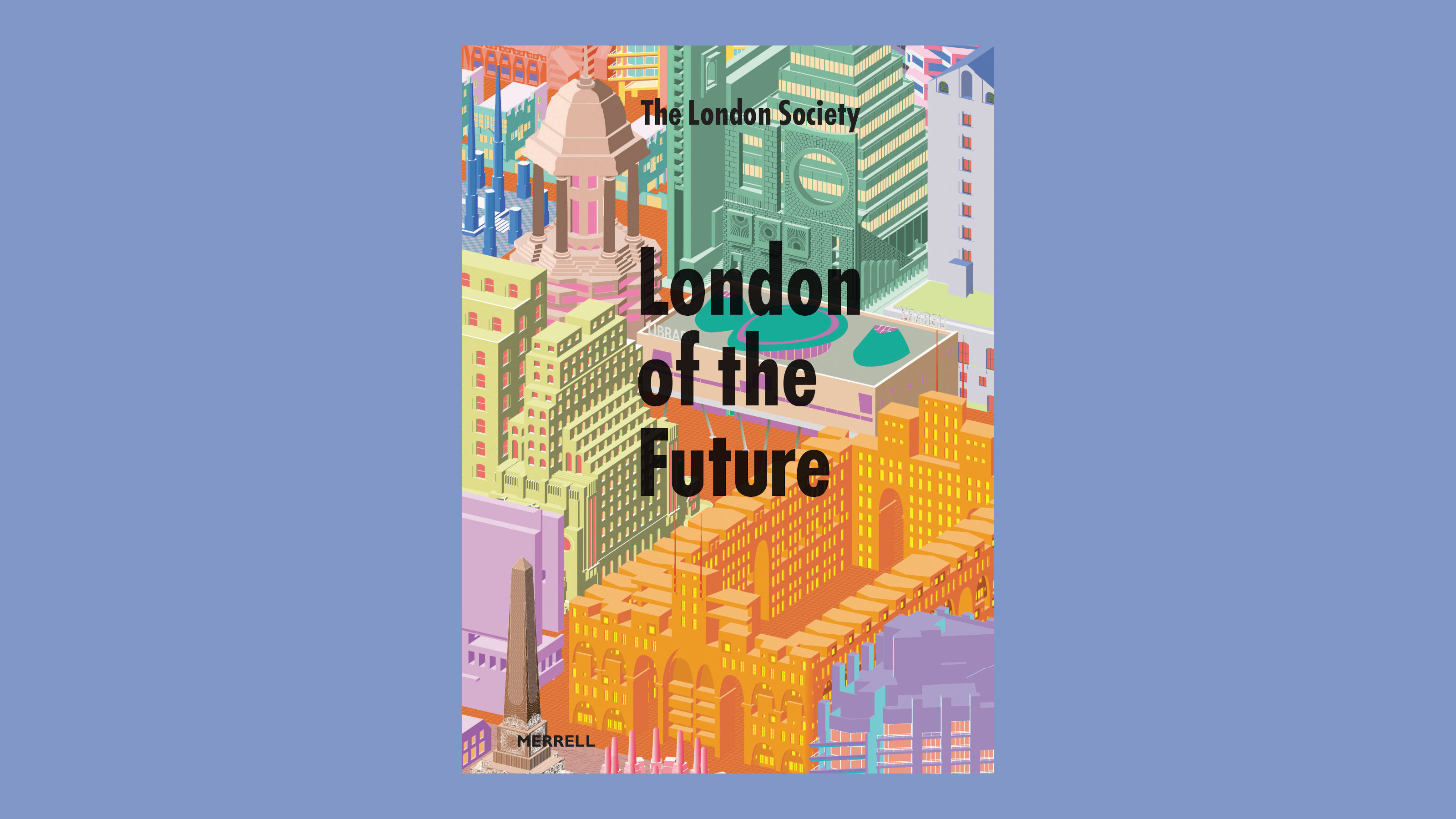
Receive our daily digest of inspiration, escapism and design stories from around the world direct to your inbox.
You are now subscribed
Your newsletter sign-up was successful
Want to add more newsletters?

Daily (Mon-Sun)
Daily Digest
Sign up for global news and reviews, a Wallpaper* take on architecture, design, art & culture, fashion & beauty, travel, tech, watches & jewellery and more.

Monthly, coming soon
The Rundown
A design-minded take on the world of style from Wallpaper* fashion features editor Jack Moss, from global runway shows to insider news and emerging trends.

Monthly, coming soon
The Design File
A closer look at the people and places shaping design, from inspiring interiors to exceptional products, in an expert edit by Wallpaper* global design director Hugo Macdonald.
Hindsight is a wonderful thing. In 1912, when The London Society was founded, the architects, planners and grandees that made up the membership could have had no inkling of the changes the coming century would bring. The automobile was only just making its presence felt, but the idea that whole swathes of the city would be sacrificed for the convenience of drivers was unthinkable, as was the prospect of an enemy’s bombs laying waste to centuries of history. London of the Future, a new publication launched by the society this autumn, shows that it is still in rude health.
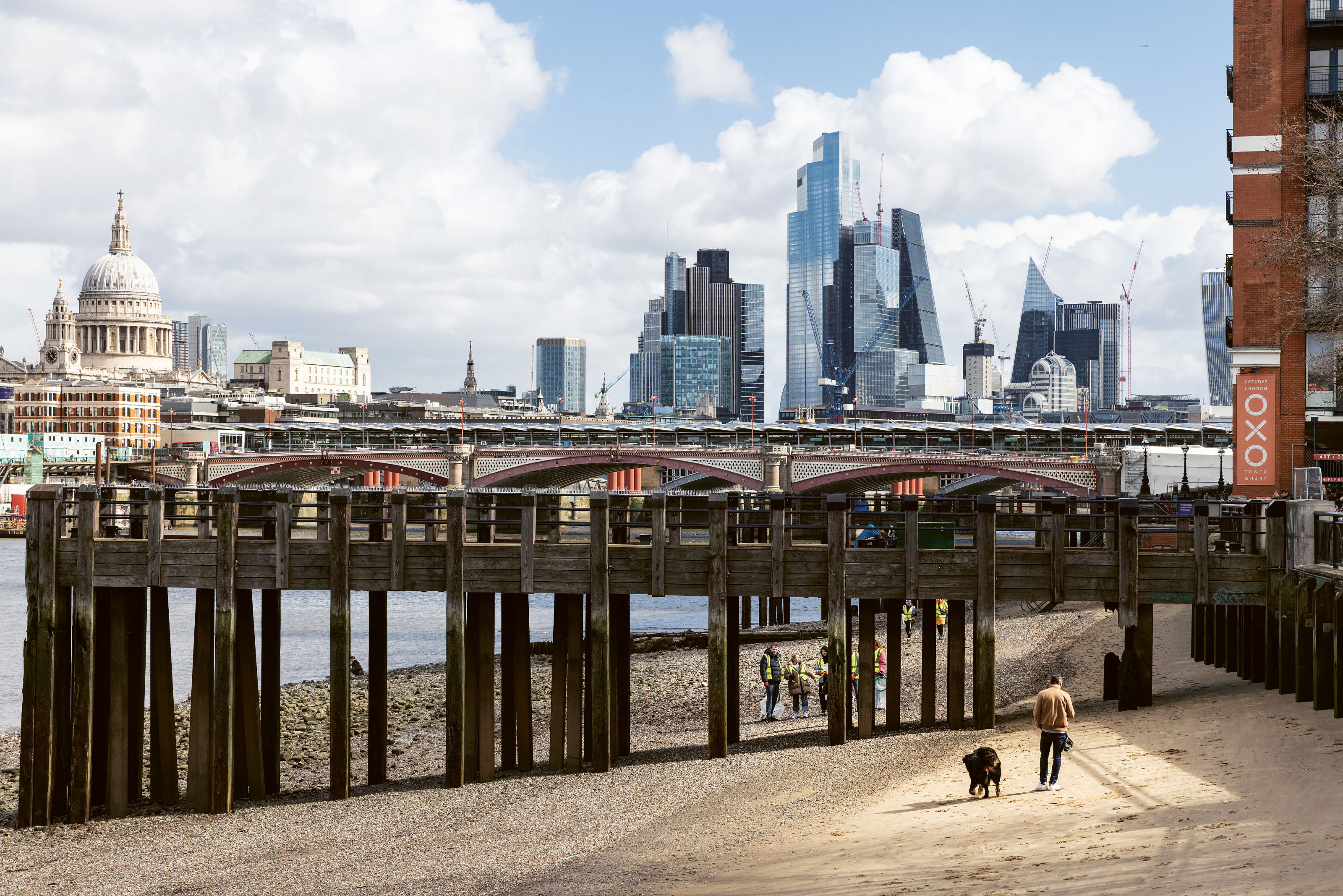
The City, seen from the beach by Oxo Tower Wharf
‘London of the Future’: a book exploring London in 100 years
London of the Future displays how The London Society, just like the city it celebrates, is still capable of great leaps of thought and imagination. However, the flip side is that progress is not always progressive, and there’s a long list of threats to tackle if the capital is to retain its global crown.
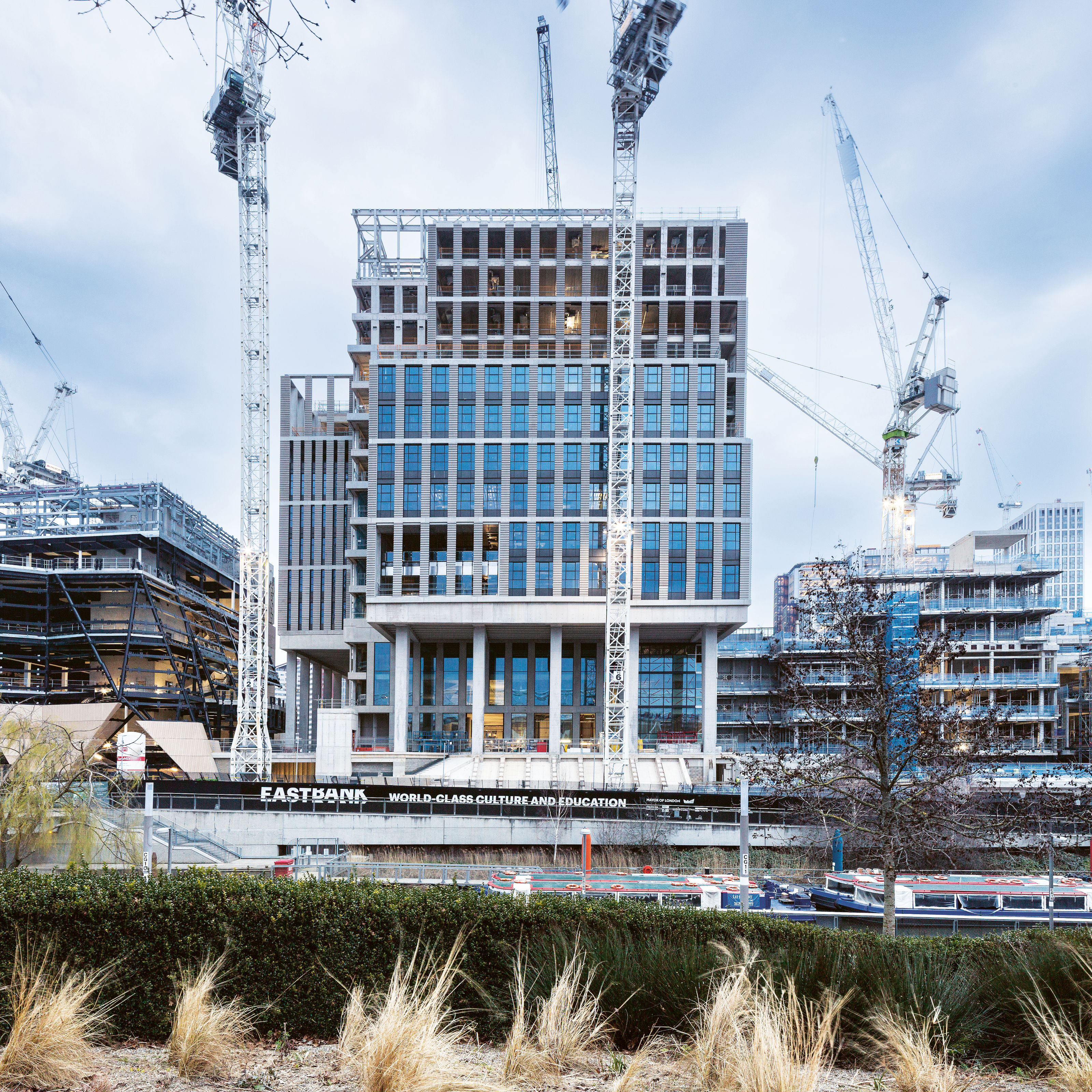
‘East Bank, a new cultural quarter and “creative cluster” for the Queen Elizabeth Olympic Park in east London, opens in 2023’
The jumping off point is the society’s original publication, also called London of the Future and published in 1921 just as futurism and science fiction were starting to incite and instigate social and cultural change. Some of the predictions contained in that book hit home – city-centre airports and the Channel tunnel, for example, or how the demand for housing and the perils of pollution might be addressed. Other speculations fell short of conjuring up an attainable future.
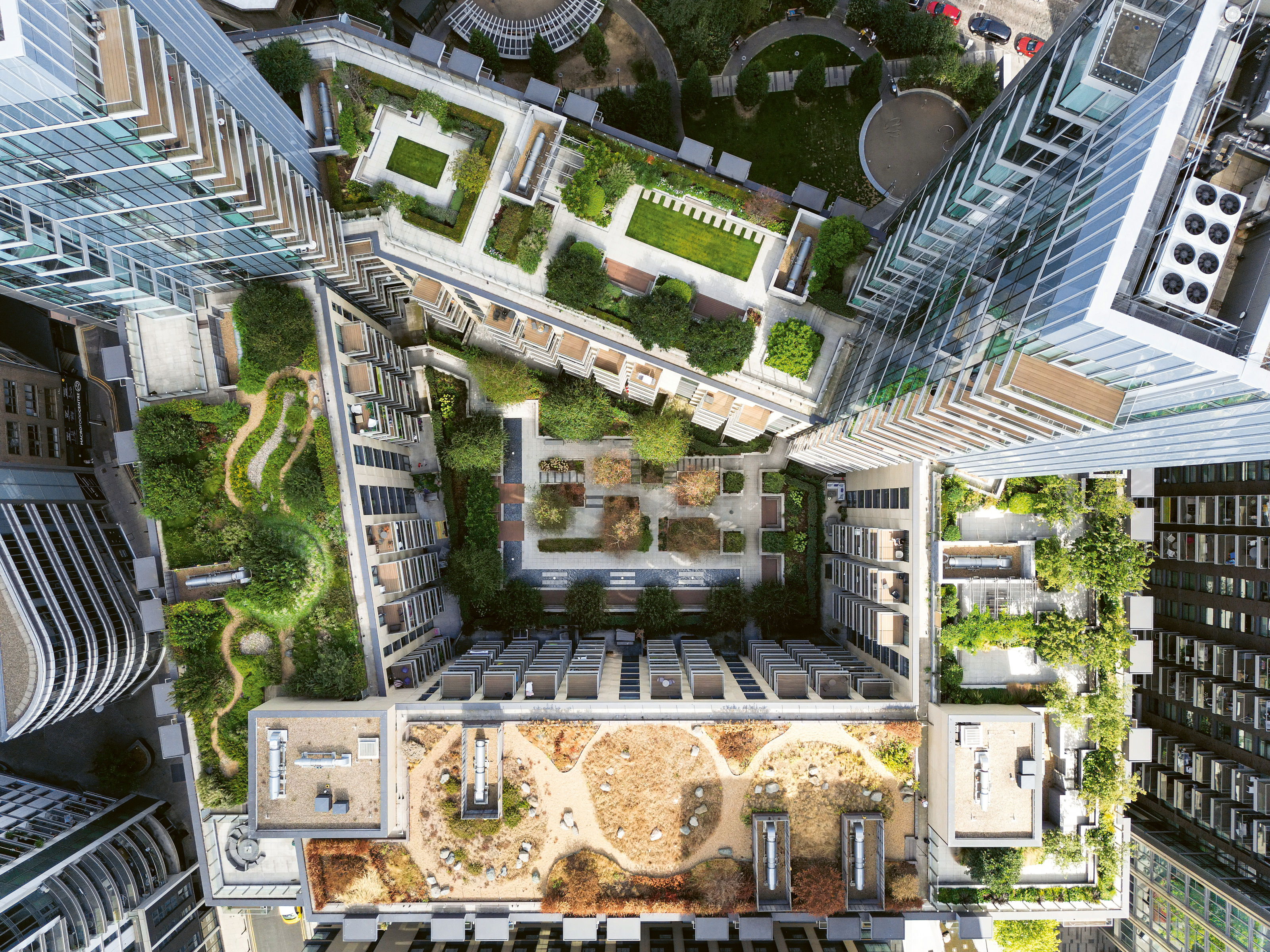
'The varied gardens on the roof of Goodman’s Fields, Aldgate, offer a tantalizing glimpse of a greener city.'
This new architecture book undertakes a similar exercise: ‘How could and should the city be improved by 2123?’ Perhaps the target now seems a little too distant, given how quickly technology can change society, as well our collective inability to carry out even the shortest of short-term plans. However, it’s certainly insightful to see what experts in various fields think will happen (as well as what needs to happen).
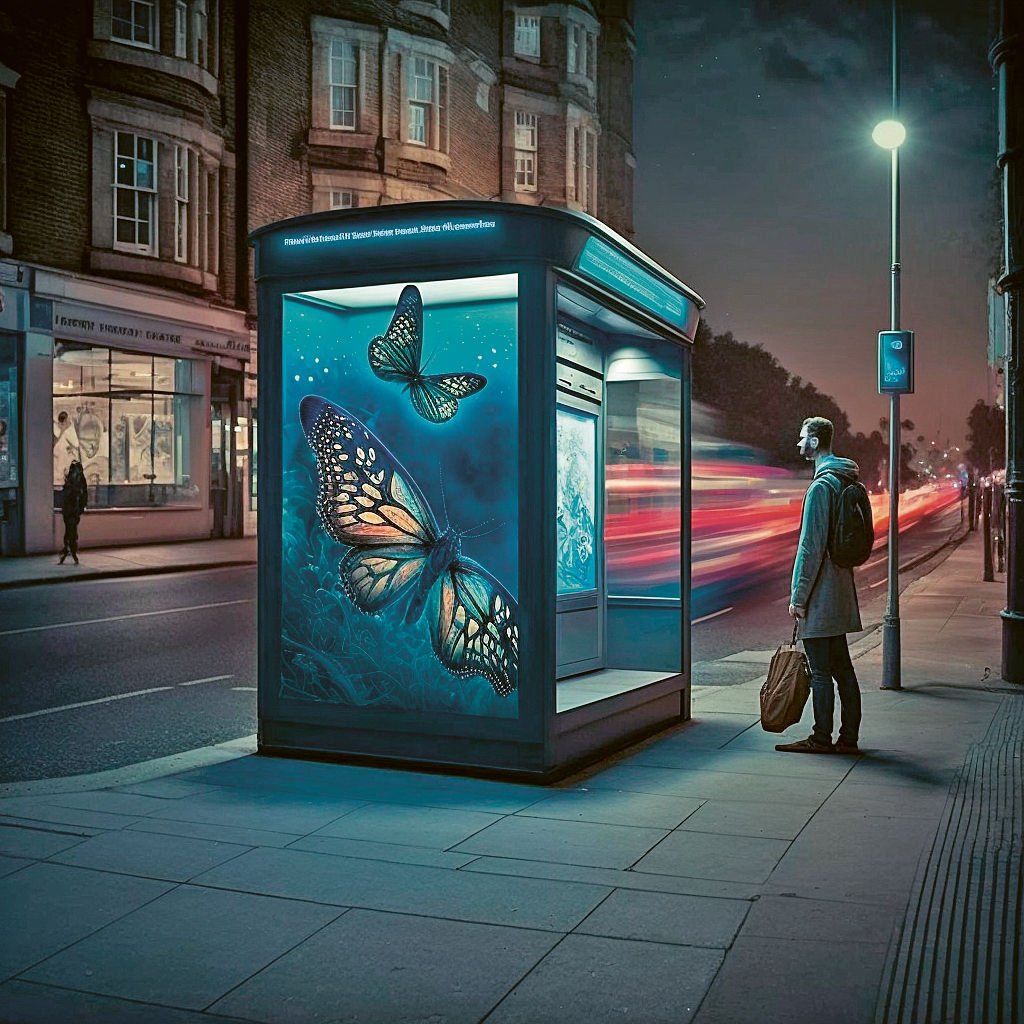
An AI-generated illustration from London of the Future
Introduced by Peter Murray, founder of New London Architecture and current chairman of The London Society, the book’s 18 essays include contributions from Sarah Ichioka, Jude Kelly, Hugh Pearman, and more. The topics range from conservation to food security through to AI-generated futures, tackling the inequality ingrained into the city’s fabric, as well as the perennial problems of housing provision and climate change.
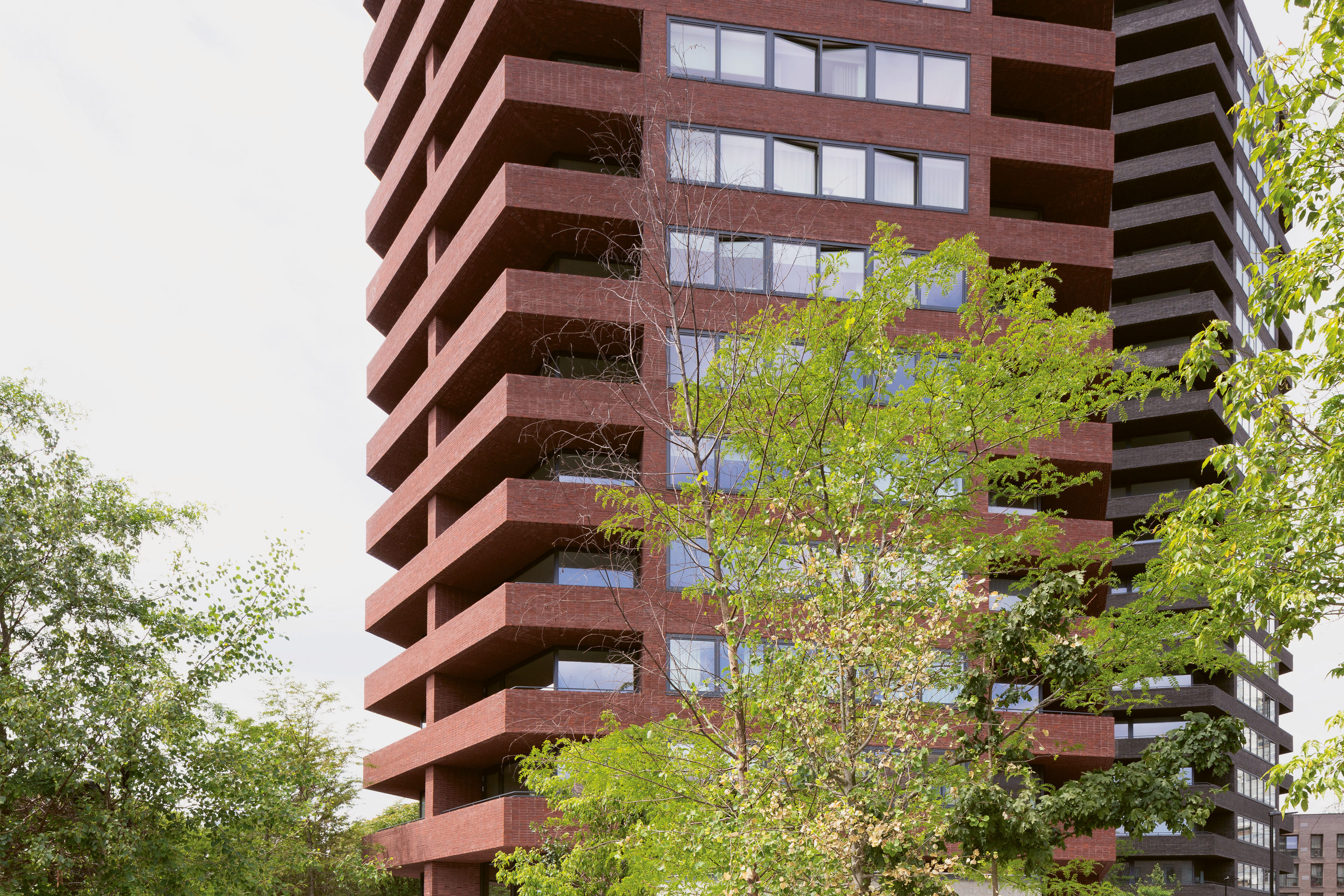
'The Hoxton Press Buildings (2018), a primarily residential development in Hoxton, east London, by David Chipperfield Architects and Karakusevic Carson Architects'
Critics often complain that London gets disproportionate attention compared to the rest of the UK, but then it also has a disproportionate impact on the country’s economy. London of the Future shows that although futurology is still very much an inexact science, it still has a role to play in shaping the world of tomorrow.
London of the Future, The London Society, £40, available from Amazon
Receive our daily digest of inspiration, escapism and design stories from around the world direct to your inbox.
Jonathan Bell has written for Wallpaper* magazine since 1999, covering everything from architecture and transport design to books, tech and graphic design. He is now the magazine’s Transport and Technology Editor. Jonathan has written and edited 15 books, including Concept Car Design, 21st Century House, and The New Modern House. He is also the host of Wallpaper’s first podcast.